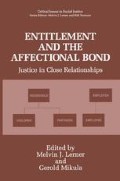Abstract
A few years ago a student in our university wrote about the life of a Japanese movie star for her Psychology of Women class. She believed the actress, Miyagi Mariko, personified the “essential mother nature,” even though she was not married and had no children. Miyagi Mariko spent much of her personal wealth building a school for mentally retarded children, and she took pleasure in giving time and attention to the children. The American professor who taught the class wanted to explore the ironies of this case and develop a more structural analysis—had the actress really become a “mother,” her movie career would most likely have been curtailed. Or perhaps philanthropy and good works are different from the daily commitments of motherhood. But the student held fast to her psychodynamic theory, convinced that the actress, a highly successful, resolutely single woman, was still the embodiment of an essential mother nature. On the day for individual conferences, the student came to school wearing a T-shirt that said “MILK” in large pink letters across the front.
Access this chapter
Tax calculation will be finalised at checkout
Purchases are for personal use only
Preview
Unable to display preview. Download preview PDF.
References
American Demographics, December 1988, Boulder, CO.
Bankart, B. (1989). Japanese perceptions of motherhood. Psychology of Women Quarterly, 13, 59–76.
Bestor, T. C. (1985). Gendered domains: A commentary on research in Japanese studies. Journal of Japanese Studies, 11, 283–287.
Bestor, T. C. (1990). Tokyo mom-and-pop. Wilson Quarterly, 27-33.
Chodorow, N. (1978). The reproduction of mothering: Psychoanalysis and the sociology of gender. Berkeley: University of California Press.
Condon, J. (1985). A half step behind: Japanese women of the’ 80s. New York: Dodd, Mead, 1985.
Crosby, F. J. (1982). Relative deprivation and working women. New York: Oxford University Press.
Enomoto, Y. (1989). Liberated men reprioritize. Japan Times, November 30, p. 16.
Fujita, M. (1989). “It’s all mother’s fault”: Childcare and the socialization of working mothers in Japan. Journal of Japanese Studies, 15.
Gilman, C. P. (1973). The yellow wallpaper. Old Westbury, NY: Feminist Press (Reprint of 1899 edition).
Hirsh, M. (1992). Fewer burning late-night oil: Young workers revolt against “corporationism.” Japan Times, April 30, p. 3.
Hochschild, A. (1989). The second shift: working parents and the revolution at home. New York: Viking Penguin.
Hoshi, T. (1987). The Men’s Book for Childcare. Tokyo: Gendai Shokan Pub.
Iwao, S. (1976). Onna no manzokukan—onna no ikigai (Women’s satisfaction—women’s meaning in life). In Nihonjin Kenkyukai (Ed.), Nihonjin Kenkyu: Vol. 3. Tokushu: Onna ga kangaete iru koto (The Japanese: Special Topic: What women are thinking) Tokyo: Taiseido.
Iwao, S. (1992). The Japanese woman: Traditional image and changing realities. Glenco IL: Free Press.
Japan Times (1990). Ministry may start unit to slow birthrate drop. June 13, p. 2.
Japan Times (1991). Survey reveals fear of death by work. June 3, p. 20.
Japan Times (1992a). Official help for shorter work hours. February 2, p. 20.
Japan Times (1992b). Birthrate continues decline for 12th year, January 1, p. 2.
Japan Times (1992c) Working-to-death hotline swamped by calls for help. June 22, p. 2.
Kelly, W. W. (1990). Japanese farmers. Wilson Quarterly, Autumn, pp. 34–41.
Kidder, L. H., Fagan, M. A., & Cohn, E. S. (1981). Giving and receiving: Social justice in close relationships. In M. J. Lerner & S. C. Lerner (Eds.), The justice motive in social behavior: Adapting to times of scarcity and change (chap. 11). New York: Plenum.
Lebra, T. S. (1984). Japanese women: Constraint and fulfillment Honolulu: University of Hawaii Press.
Lerner, M. J., Somers, D. G., Reid, D. W., & Tierney, M. C. (1989). A social dilemma: Egocentrically biased cognitions among filial caregivers. In S. Spacapan & S. Oskamp (Eds.), The social psychology of aging. Newbury Park, CA: Sage.
Louis, L. (1992). Butterflies of the night. New York: Tengu.
Mikula, G. (1986). The experience of injustice: Toward a better understanding of its phenomenology. In H. W. Bierhoff, R. L. Cohen, & J. Greenberg (Eds.), Justice in interpersonal relations (pp. 103–132). New York: Plenum.
Mikula, G. Petri, B., & Tanzer, N. (1990). What people regard as unjust: Types and structures of everyday experiences of injustice. European Journal of Social Psychology, 20, 133–149.
Ohinata, M, (1992). Bosei wa onna no kunsho desuka? Tokyo: Sankei Shinbun.
Sato, B. H. (1994). The moga sensation: The initial response of Japanese intellectuals to mass culture during the late 1920’s and early 1930’s. Unpublished manuscript, Department of East Asian Languages and Culture, Columbia University, New York.
Sievers, S. L. (1983). Flowers in salt: The beginnings of feminist consciousness in modern Japan. Stanford, CA: Stanford University Press.
Uno, K. S. (1991). Women and changes in the household division of labor. In G. S. Bernstein (Ed.), Recreating Japanese women, 1600–1945 (chap. 1). Berkeley: University of California Press.
Uno, K. S. (1991). Japan. In J. M. Hawes & N. R. Hiner (Eds.), Children in comparative and historical perspective: An international handbook. Greenwood. Westport, CT: pp. 389-420.
Walthall, A. (1991). The life-cycle of farm women in Tokugawa Japan. In G. S. Bernstein (Ed.), Recreating Japanese women, 1600–1945 (chap. 2). Berkeley: University of California Press.
Vogel, S. H. (1978). Professional housewife: The career of urban middle class Japanese women. Japan Interpreter, 12, 16–43.
Yoshida, Atsuhiko (1992). Nihonshinwa no naritachi. Tokyo: Seido-sha.
Youth Affairs Administration (1988). Japanese children and their fathers: A comparison with the United States and West Germany. Tokyo: Management and Coordination Agency, Prime Minister’s Office.
Author information
Authors and Affiliations
Editor information
Editors and Affiliations
Rights and permissions
Copyright information
© 1994 Springer Science+Business Media New York
About this chapter
Cite this chapter
Kidder, L.H., Kosuge, N. (1994). Family Work in Modern Japan. In: Lerner, M.J., Mikula, G. (eds) Entitlement and the Affectional Bond. Critical Issues in Social Justice. Springer, Boston, MA. https://doi.org/10.1007/978-1-4899-0984-8_13
Download citation
DOI: https://doi.org/10.1007/978-1-4899-0984-8_13
Publisher Name: Springer, Boston, MA
Print ISBN: 978-1-4899-0986-2
Online ISBN: 978-1-4899-0984-8
eBook Packages: Springer Book Archive

